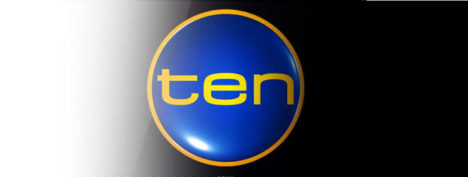History and politics tell us the CBS purchase of Ten is not a done deal
While CBS’s acquisition of Network Ten has been largely reported as a done deal, the transaction still faces a number of barriers. The history of politically expedient and opaque decision making by the Foreign Investment Review Board and politicians means we shouldn’t assume this deal is done, says Mumbrella’s Paul Wallbank.
When Monday’s announcement dropped, it looked like the administrators had made a pragmatic choice – to take the certainty of a binding bid for Ten from US giant CBS over a more complex offer from Lachlan Murdoch and Bruce Gordon.
But there are hurdles remaining that could yet derail the deal. Creditors – including News Corp’s Fox Studios – have to vote on the offer, the Federal court needs to unwind existing company deeds and the Foreign Investment Review Board must approve the investment. And the latter could yet prove to be an unexpected stumbling block.



Wasn’t ARN owned by APN, not Fairfax?
Absolutely right, OZwords. I’ve just corrected that and my apologies.
Paul Wallbank
News Editor
For the Australian community. For choice, for competition and for the greater good; wouldn’t it be a really stupid move not to vote for CBS? It would be great for the market and really up the game of everyone and again, give viewers a greater choice. I hope it goes through.
Maybe the Murdochs should have thought about complying with the rules instead of demanding they be changed. Maybe Lachlan should have just sold his radio for a nice profit in 2014 and bought out Ten then, instead of convincing acma to do it’s ridiculous backflip to allow News Corp’s investment.
To give some further context to the hesitancy we should all have in this being a done deal it’s interesting to note how our Treasurer – (Scott Morrison – aka the person guiding final CBS approval) – came to be the Federal member for Cook.
In 2007 long term Liberal Party member Michael Towke was set to take Cook pre-selection, winning the internal Party vote by 82-8 over Morrison. This was then overturned as a series of articles appeared in the Daily Telegraph where “Towke was portrayed as a serial liar, an exaggerator. Towke disputed every such imputation with factual evidence. After it was obvious his political credibility had been destroyed by these stories, he started defamation proceedings. A year of legal attrition ensued. Shortly before the matter was to begin in court, Nationwide News paid and settled.”
You can see more on this sorry story here – http://www.theleader.com.au/st.....his-story/
As a long time follower of our mainstream media landscape I share Paul’s thoughts in saying this story has a long way to run.
I hope we’re both wrong.
It’s more than enough to have two Leftist TV media outlets in Australia, with the ABC and Ten (not to mention their leprosy-like popularity with viewers), but to have one of them taken over by yet another Leftist outlet like CBS, is a bridge too far. Block it.
That qualifies as the most lunatic comment on this issue so far. Ten leftist? CBS leftist?!?!?!
I notice the usual media commentator suspects pointing out that CBS will “have to understand the nuances of the Australian market if they want to make a go of it”. Blah blah blah.
I think that’s bollocks. I hope the CBS deal goes through, and I desperately hope they completely ignore the local competition and just do their own thing… especially when it comes to packaging and promotion. That could really shake things up for the better!
History tells us that the FIRB approved the takeover of Ten by Canwest _even when it was illegal_.
Done and dusted.